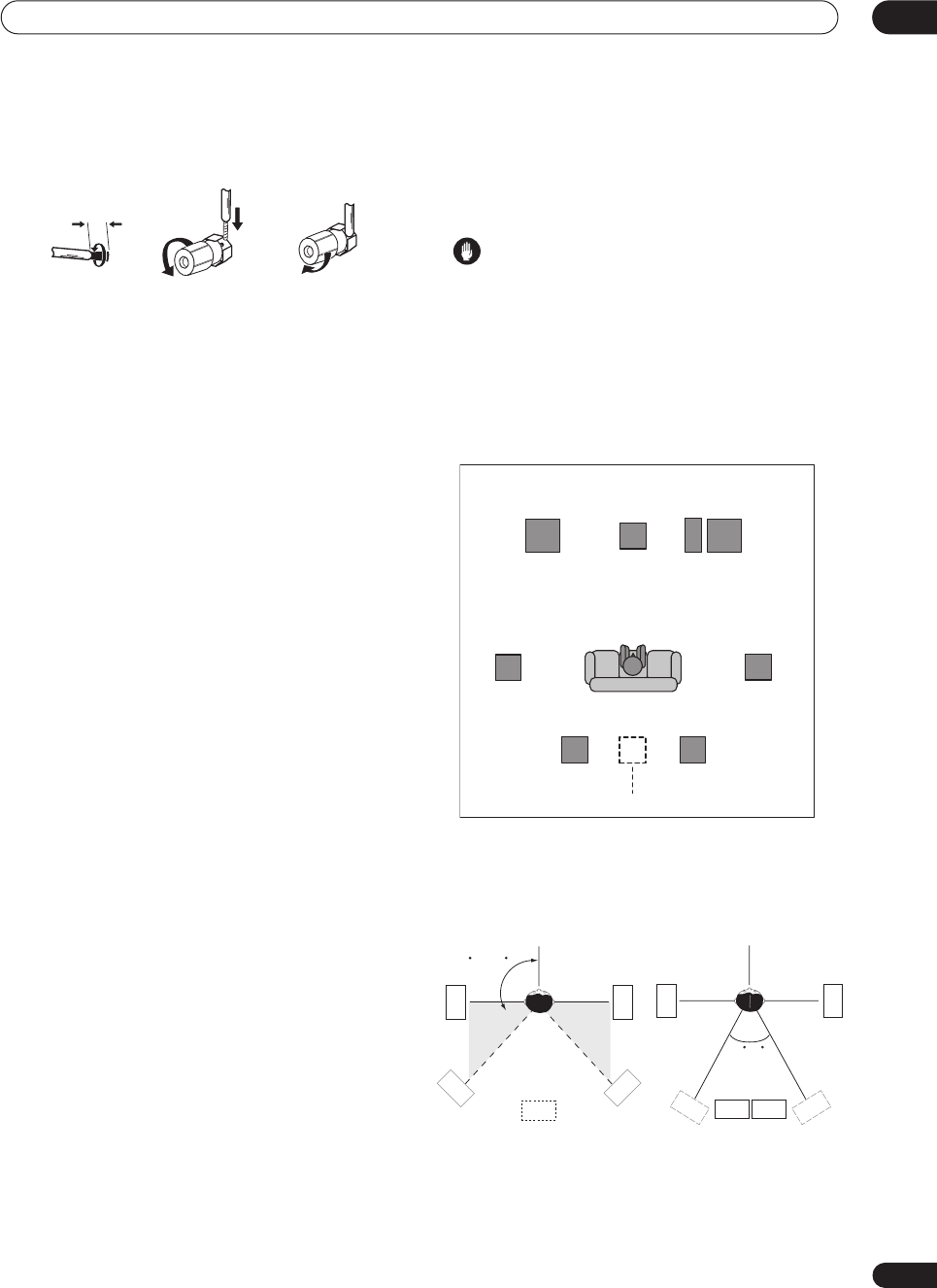
Connecting up
03
21
En
Speaker terminals
1 Twist exposed wire strands together.
2 Loosen speaker terminal and insert exposed
wire.
Make sure that all the bare speaker wire is twisted
together and inserted fully into the speaker terminal. Use
good quality speaker wire to connect the speakers to the
receiver.
3 Tighten terminal.
Hints on speaker placement
Speakers are usually designed with a particular
placement in mind. Some are designed to be
floorstanding, while others should be placed on stands to
sound their best. Some should be placed near a wall;
others should be placed away from walls. We have
provided a few tips on getting the best sound from your
speakers (following), but you should also follow the
guidelines on placement that the speaker manufacturer
provided with your particular speakers to get the most
out of them.
• Place the front left and right speakers at equal
distances from the TV.
• When placing speakers near the TV, we recommend
using magnetically shielded speakers to prevent
possible interference, such as discoloration of the
picture when the TV is switched on. If you do not have
magnetically shielded speakers and notice
discoloration of the TV picture, move the speakers
farther away from the TV.
• If you're using a center speaker, place the front
speakers at a wider angle. If not, place them at a
narrower angle.
• Place the center speaker above or below the TV so
that the sound of the center channel is localized at
the TV screen. Also, make sure the center speaker
does not cross the line formed by the leading edge of
the front left and right speakers.
• It is best to angle the speakers towards the listening
position. The angle depends on the size of the room.
Use less of an angle for bigger rooms.
• Surround and surround back speakers should be
positioned 60 cm–90 cm higher than your ears and
titled slight downward. Make sure the speakers don't
face each other. For DVD-Audio, the speakers should
be more directly behind the listener than for home
theater playback.
• To achieve the best possible surround sound, install
your speakers as shown below. Be sure all speakers
are installed securely to prevent accidents and
improve sound quality.
Caution
• If you choose to install the center speaker on top of
the TV, be sure to secure it with putty, or by other
suitable means, to reduce the risk of damage or
injury resulting from the speaker falling from the TV
in the event of external shocks such as earthquakes.
Overhead view of speaker setup
You can also refer to the 3-D speaker setup illustration on
page 10.
The diagrams below show suggested surround and
surround back speaker orientation. The first diagram (
fig.
A
) shows orientation with one surround back speaker (or
none) connected. The second (
fig. B
) shows orientation
with two surround back speakers connected.
• If you have two surround back speakers THX
recommends placing them together and the same
distance from your listening position.
10mm
12 3
Surround
Left
Surround
Right
Listening Position
Front
Left
Front
Right
Center
Surround Back Surround Back
Single Surround Back Speaker
Left Right
Subwoofer
90~120
fig. A
fig. B
LS
LS
RS
RS
SB
LS
RS
0~60
SBL
SBL
SBR
SBR
VSX_2014TX.book.fm Page 21 Wednesday, June 2, 2004 5:21 PM


















